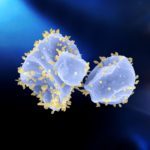Lien vers Pubmed [PMID] – 35834963
Lien DOI – S1931-3128(22)00313-410.1016/j.chom.2022.06.008
Cell Host Microbe 2022; 30(7): 917-929
Viruses are obligate intracellular parasites. Despite their dependence on host cells, viruses are evolutionarily autonomous, with their own genomes and evolutionary trajectories locked in arms races with the hosts. Here, we discuss a simple functional logic to explain virus macroevolution that appears to define the course of virus evolution. A small core of virus hallmark genes that are responsible for genome replication apparently descended from primordial replicators, whereas most virus genes, starting with those encoding capsid proteins, were subsequently acquired from hosts. The oldest of these acquisitions antedate the last universal cellular ancestor (LUCA). Host gene capture followed two major routes: convergent recruitment of genes with functions that directly benefit virus reproduction and exaptation when host proteins are repurposed for unique virus functions. These forms of host protein recruitment by viruses result in different levels of similarity between virus and host homologs, with the exapted ones often changing beyond easy recognition.

